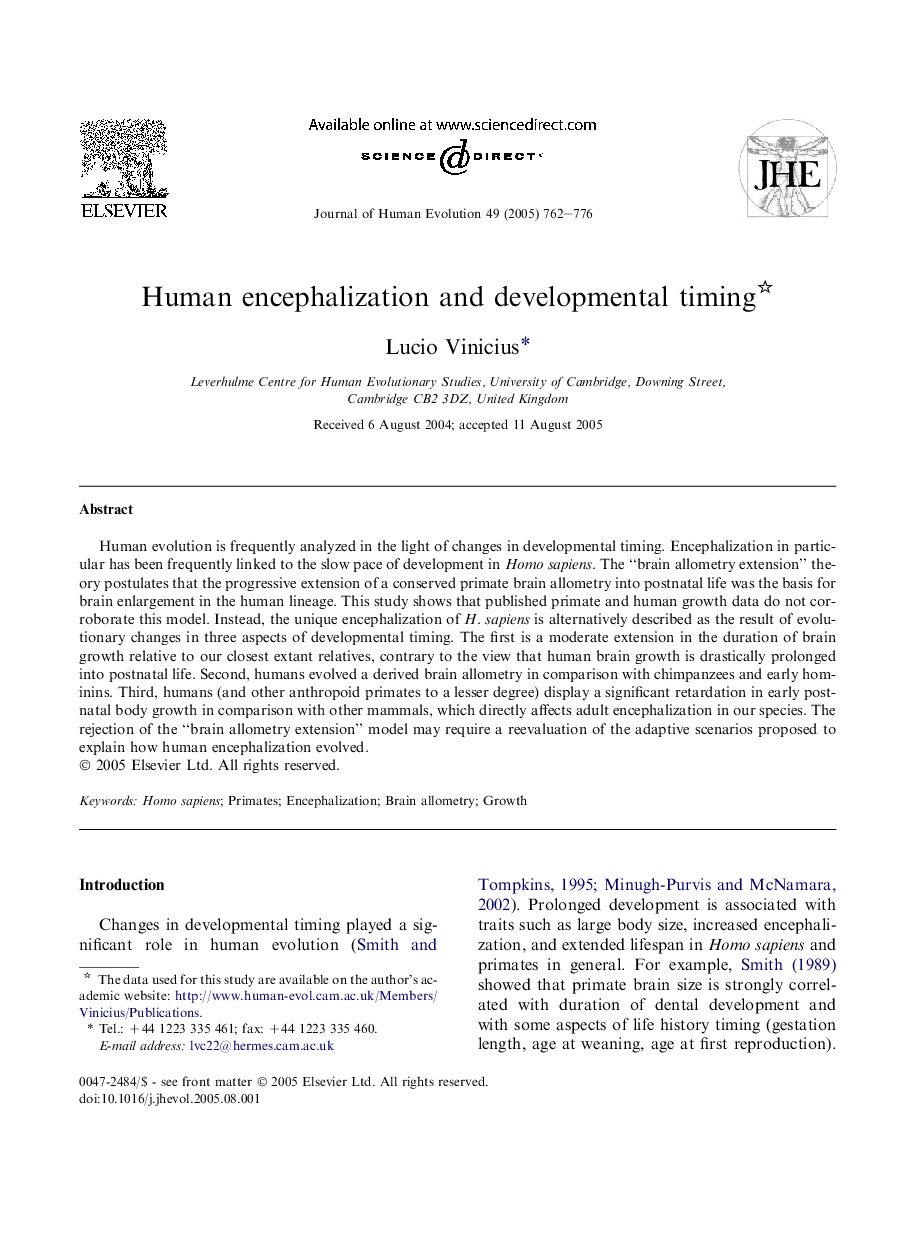| Article ID | Journal | Published Year | Pages | File Type |
|---|---|---|---|---|
| 9485931 | Journal of Human Evolution | 2005 | 15 Pages |
Abstract
Human evolution is frequently analyzed in the light of changes in developmental timing. Encephalization in particular has been frequently linked to the slow pace of development in Homo sapiens. The “brain allometry extension” theory postulates that the progressive extension of a conserved primate brain allometry into postnatal life was the basis for brain enlargement in the human lineage. This study shows that published primate and human growth data do not corroborate this model. Instead, the unique encephalization of H. sapiens is alternatively described as the result of evolutionary changes in three aspects of developmental timing. The first is a moderate extension in the duration of brain growth relative to our closest extant relatives, contrary to the view that human brain growth is drastically prolonged into postnatal life. Second, humans evolved a derived brain allometry in comparison with chimpanzees and early hominins. Third, humans (and other anthropoid primates to a lesser degree) display a significant retardation in early postnatal body growth in comparison with other mammals, which directly affects adult encephalization in our species. The rejection of the “brain allometry extension” model may require a reevaluation of the adaptive scenarios proposed to explain how human encephalization evolved.
Related Topics
Life Sciences
Agricultural and Biological Sciences
Ecology, Evolution, Behavior and Systematics
Authors
Lucio Vinicius,
